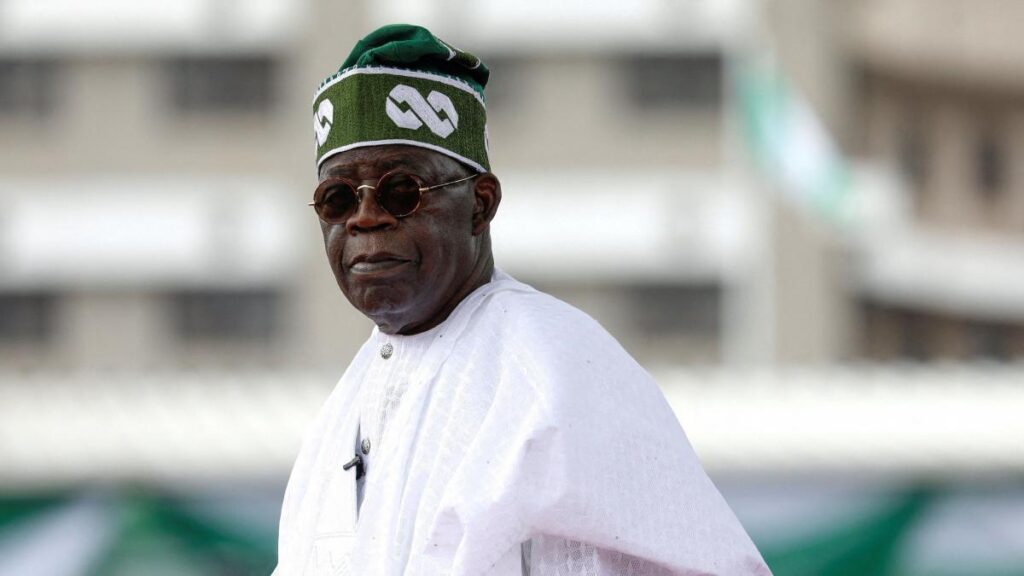Nigeria’s President Bola Tinubu has ordered the immediate release of a group of 27 teenagers, aged between 14 and 18, who had been accused of treason following their arrest during anti-government protests. These young individuals, among a larger group of 76 suspects, were in custody for nearly three months after participating in protests related to the country’s worsening economic situation. Outrage erupted after footage showed several of the boys collapsing in court, attributed to malnourishment, prompting a public outcry regarding their treatment by authorities. The protests, part of the #EndBadGovernance movement, initially erupted in August over issues like the rising cost of living but escalated into violence in various areas, leading to clashes with security forces and numerous arrests.
During their court appearance, which marked their first since detention, four of the boys collapsed, drawing urgent attention to their conditions. Videos capturing the distressing moment went viral, leading to widespread discussions about the legal and humanitarian implications of their prolonged detention. Human rights advocates spotlighted the severity of their situation, emphasizing that such treatment of minors constitutes a serious violation of their rights. According to police reports, seven individuals lost their lives during the protests, while human rights groups estimate the death toll to be significantly higher, at around 23. The unrest resulted in nearly 700 arrests, highlighting the tense atmosphere surrounding dissent in Nigeria.
In response to the public outcry and the emerging footage, President Tinubu’s office announced the decision to release the minors. Spokesman Bayo Onanuga communicated that the release should not influence the ongoing legal proceedings against others implicated in the protests. Reports indicated that the treason charges against the teenagers had been dropped, marking a significant development in the case. The humanitarian affairs ministry was tasked with ensuring the safe return of the minors to their families, as the government acknowledged the need to investigate the circumstances surrounding their lengthy detention. The incident reflects broader concerns about the treatment of young protesters in Nigeria and raises questions about the legal processes in place for handling such sensitive cases.
The courtroom episode has drawn criticism from various quarters, including advocacy group Enough is Enough, which described the ordeal as “institutional child abuse.” Amnesty International echoed these sentiments, characterizing the detention of these children as part of a severe crackdown on the right to assemble peacefully. This event underscores the ongoing struggle for freedom of expression and the right to protest in Nigeria, highlighting a perceived pattern of repression directed against dissenters. The plight of the teenagers serves to illustrate the broader context of unrest within the country, where citizens are increasingly vocal about governance failures and economic hardships.
The government’s actions, particularly in releasing the minors, could be seen as a response to international scrutiny and internal pressure to uphold human rights standards. The situation raises profound concerns about the state’s approach to youth activism and the consequences of political dissent in Nigeria. By highlighting the plight of these young individuals, the recent events have reinvigorated debates over the intersection of governance, human rights, and youth engagement in the country’s political climate. Whether this incident will lead to more significant reforms or changes in policy remains uncertain, but it undeniably sheds light on the pressing need for improvements in the treatment of detained individuals, especially minors.
As Nigeria navigates its challenging socio-political landscape, the incident around the detained teenagers represents a critical juncture. It reflects the ongoing tensions between the government and its citizens, especially the youth who are increasingly taking to the streets to demand accountability and change. How the Nigerian government responds to the public outcry following this incident could set a precedent for how similar cases are handled in the future, shaping the future of protest rights and governance in the nation. Ultimately, the release of these minors needs to be seen in the context of broader systemic issues, as Nigeria continues to grapple with its history of unrest, human rights violations, and the quest for effective governance.

